Four Corners goes face-to-face with Israel’s powerful political and military voices.
This article is 6 months old
By John Lyons — with Jonathan Miller, Mayeta Clark and Maddy King
Australian Broadcasting Corporation, 10 March, 2024
Ehud Barak says more than two decades ago he was new enough in Israeli politics to tell the truth. He declared then that if he was a Palestinian, he’d probably be a terrorist.
That comment could have derailed a spectacular military and political career, but the former general chief of staff of the Israel Defense Forces (IDF) went on to become prime minister and defence minister.
Today, as the world holds its breath in anticipation of a ceasefire in Gaza, the former leader offers a frank assessment of Israeli intelligence.
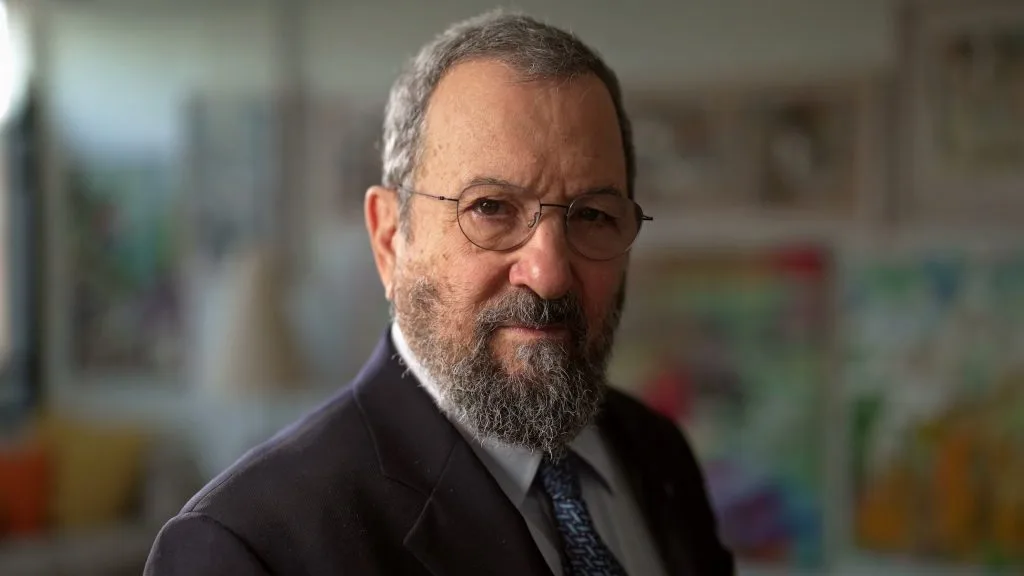
He describes Hamas’s violent October 7 attack – in which about 1,200 people were killed and around 240 kidnapped – as “the worst failure of our intelligence and operational forces since the establishment of the state of Israel”.
But when I ask why the most powerful army in the Middle East has killed so many children in response (with more than 600 dying a week, on average), he replies:
“I don’t think that anyone made the deliberate decision to kill children.”
The IDF is known for its targeted assassinations and Barak himself says he previously participated in, and ordered, several killings.
But, he notes, “I never deluded myself to believe that by killing any individual you solve the problem … it just delayed the real decision.
“Real decisions … are not about how to kill mosquitoes more effectively. It’s about how to drain the swamp.”
Israel’s ferocious retaliation to October 7 has left tens of thousands of Palestinians dead.
Gaza was already one of the most desperate places on Earth, and now vast sections are reduced to rubble with people facing starvation and disease.
Defenders of Israel’s conduct say such high civilian deaths have been inevitable because Hamas embeds itself in civilian communities and Gaza is such a densely populated area.
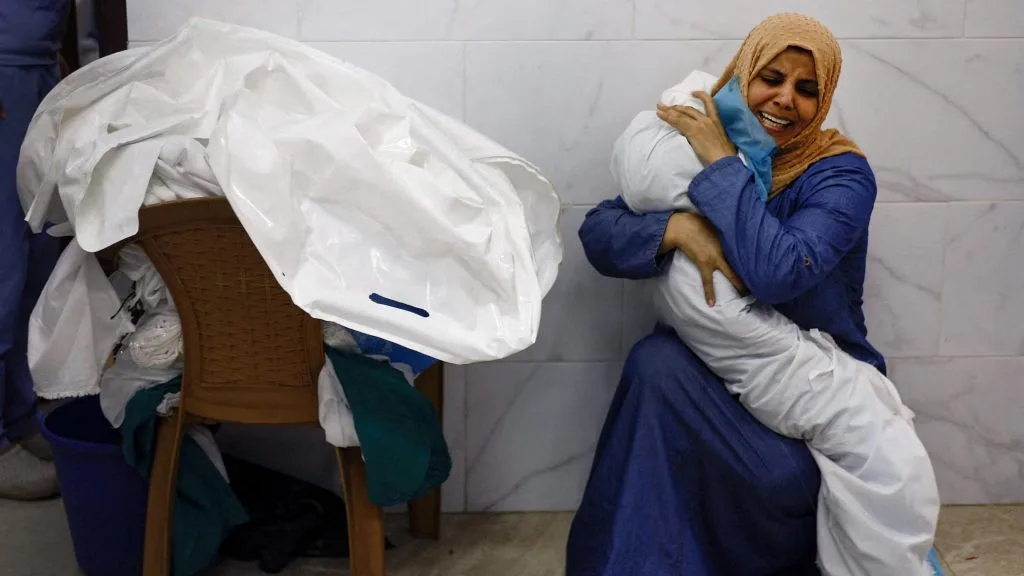
Ami Ayalon is among them, and he’s more blunt than Barak, dispensing with any diplomatic niceties.
“There was no war like this ever fought … the most populated battlefield ever fought in the history of wars,” he says.
Ayalon formerly ran Shin Bet, Israel’s domestic intelligence agency, and says it’s “almost impossible to hit a military target without killing or hitting civilians. This is one reason”.
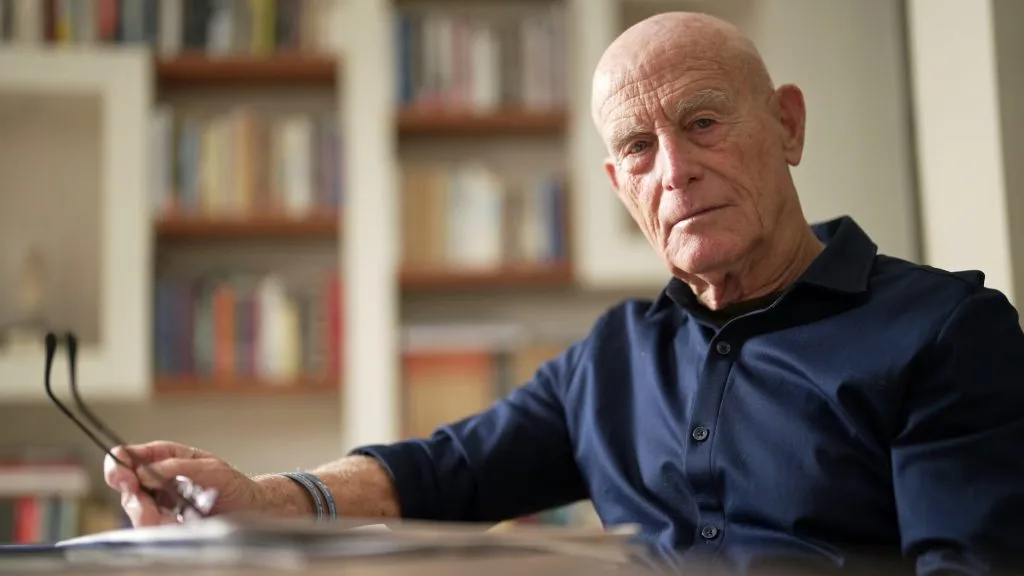
“The second reason, which is much more important, [is that] Hamas, deliberately, are using civilian targets; schools, hospitals … so Hamas is doing everything in order for us to kill or to use their people as a human shield.”
The US provides Israel with more than $3 billion in military aid each year. Since ground troops went into Gaza in late October, in combination with the Israeli air force, more than 30,000 Palestinians have been killed.
Tzipi Livni is Israel’s former foreign minister and worked for its foreign intelligence service, Mossad. She’s steadfast about how the IDF operates.
“We never target civilians,” she says.

But people are dying in their tens of thousands, and Israel is the one dropping the bombs, I say.
“I was in the Israeli security cabinet, and I know how the Israeli army is working … every target is getting the approval of the justice ministry,” she responds.
“We have no other alternative … [We] try to avoid these casualties and … can’t.”
Avi Dichter is a current cabinet minister and also a former head of Shin Bet.
He says “everything, literally everything,” went wrong on October 7, and is firm about Israel’s response to the deadliest day in its history.
“They will get cemeteries. That’s what Hamas is going to get. I’m telling you, the tunnels that they dug … they dug the biggest cemetery in the world.”
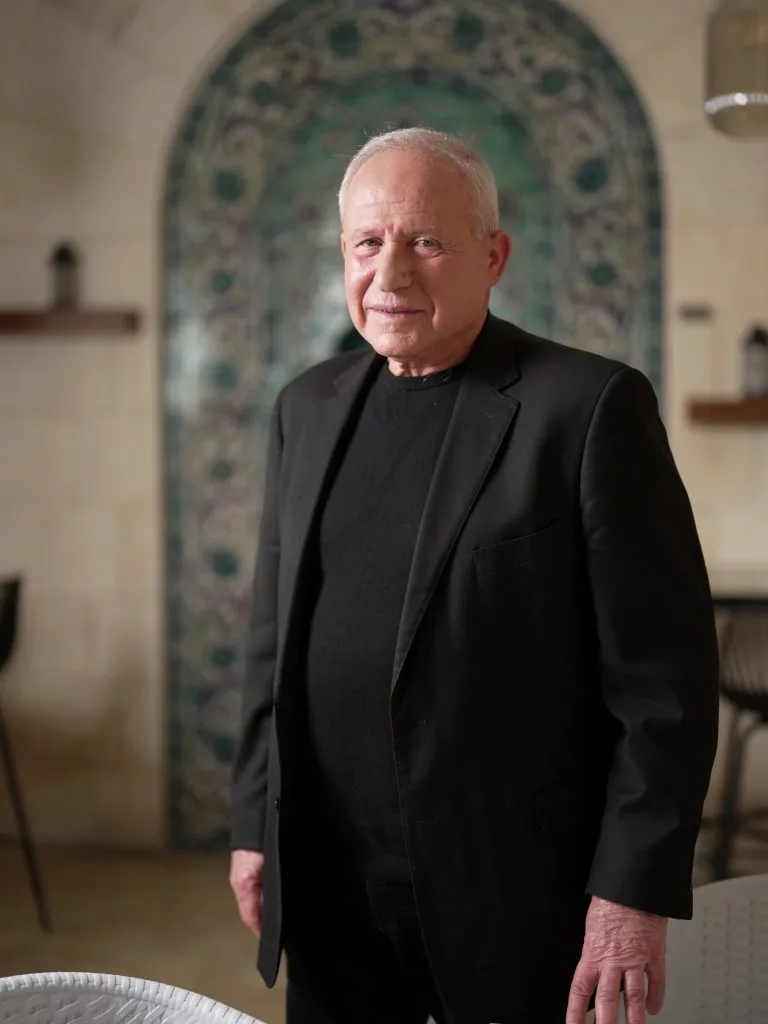
Critics though, say Israel being driven by rage, humiliation and revenge has meant far more innocent people are dying.
“That the IDF is doing everything to avoid civilian casualties is a blunt lie. Straight lie,” former Israeli army commander Yehuda Shaul says.
“And that’s a hard statement to say about my own army, but it’s the truth.”
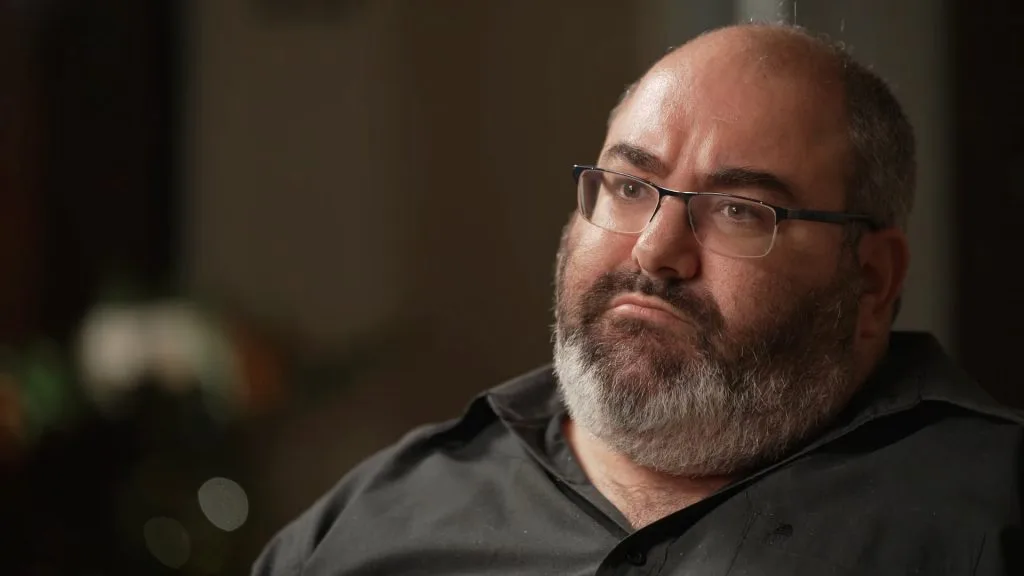
Shaul says Israel’s military strategy for 15 years has been about using disproportionate destruction as a means of deterrence – but he accuses the IDF of now loosening some of its restraints.
“So if before, let’s say for a company officer in Hamas you are allowed to take out five civilians … now in this war, for every rank-and-file guy in Hamas you’re allowed to take out … 15 civilians.
“A move like this can explain a lot of what we see.”
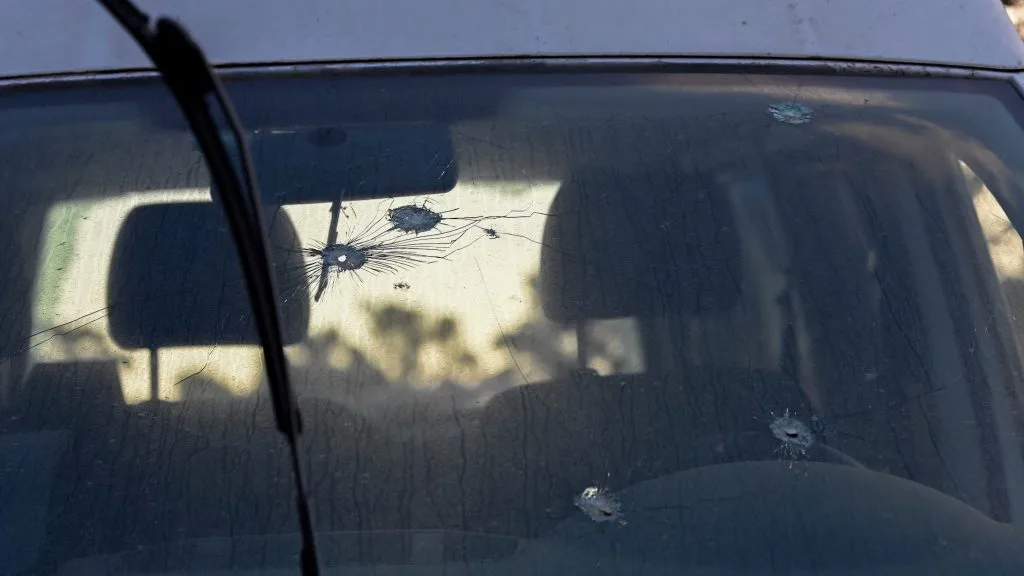
Shaul understands the desire for revenge. After watching videos of October 7, he says he was both “physically sick” and “full of rage”.
“I also had the feeling that these are animals, we need to go there and bomb the hell out of them. But then you stop for a second and you think … what did we think is going to happen after 16 years of siege?”
Shaul says what Israel is currently doing in Gaza is not going to deliver security for Israel but “sow the seeds of hatreds for generations to come”.
Life under occupation
Palestinian academic Abdeljawad Omar lives in the occupied West Bank, and says he knew from the first moment of October 7 it would “bring a ferocious Israel and a ferocious Israeli response”.
He says life under occupation was already like being in “survival mode”.
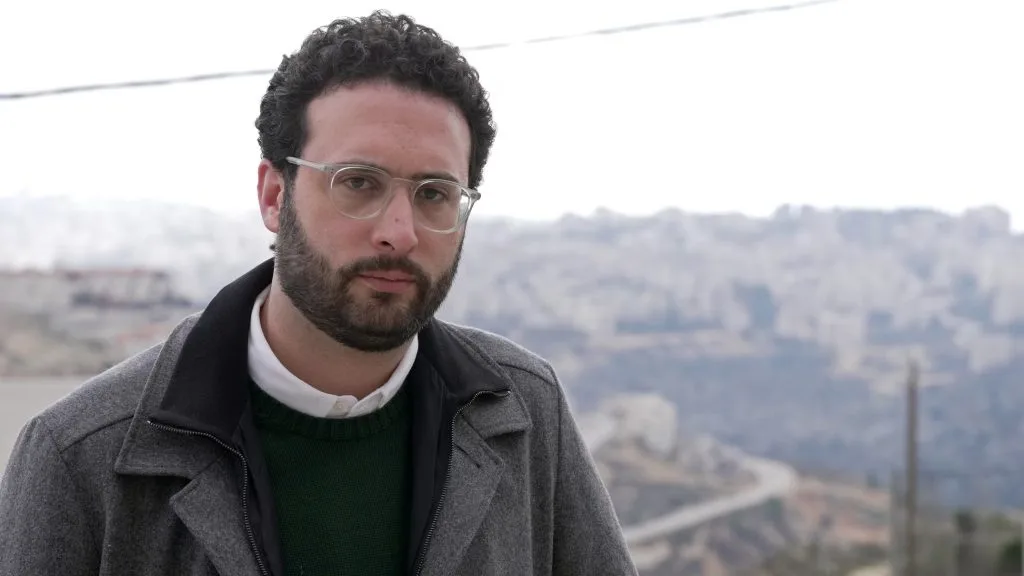
“We sometimes feel like we live in this field of targets. I’ve seen personally when an Israeli sniper hit one of my friends and high-fived his other soldier … that he got the target.”
“Life for us is struggling not to drown.”
Professor Dalal Iriqat, a fellow Palestinian academic who specialises in conflict resolution, says Israel’s broader agenda is obvious.
“The end goal is to annex the land. It doesn’t take a genius to come up with that conclusion.”
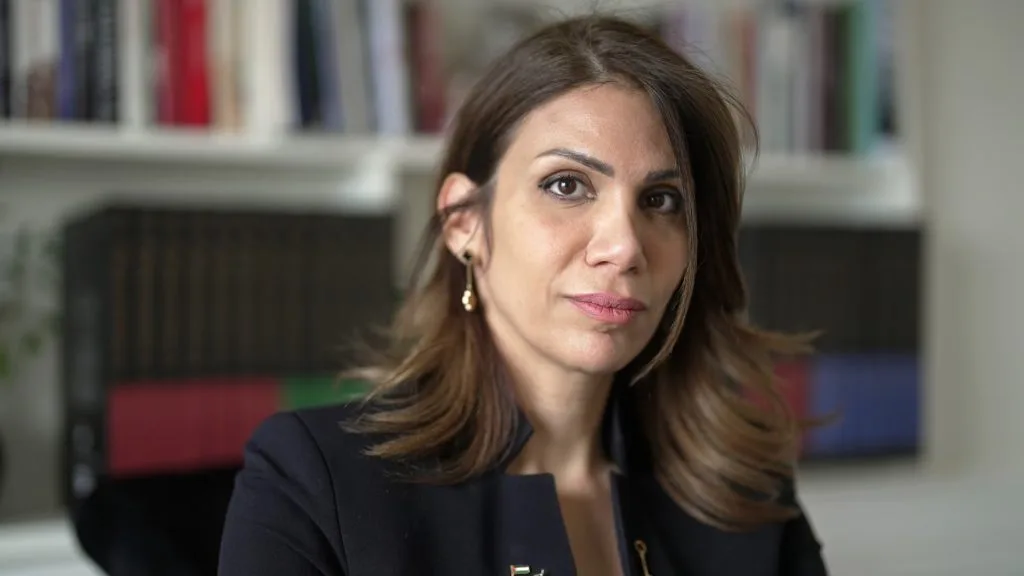
She says that agenda was evident in a recent trip Israel’s Prime Minister Benjamin Netanyahu made to the UN, where he showed a map of “the new Middle East” depicting the state of Israel without the occupied Palestinian territory.
“He doesn’t see Palestine, he doesn’t see Palestinians,” she says.
“He doesn’t view any Palestinian as a human being.”
The International Court of Justice found in a preliminary ruling it was plausible that Israel’s conduct could amount to genocide – something former Shin Bet leader Ayalon refutes.
“The intention [of genocide is] to kill a race or a people. We do not have this intention,” he says.
“We are facing a major threat and we are fighting against a threat. We are doing many mistake[s], but it is far from being genocide.”
Why Netanyahu won’t stop
One theme that came through from many of those I interviewed — from across the political spectrum — is the current lack of confidence in Israel’s prime minister.
Opinion polls suggest Netanyahu will struggle to survive the electoral retributions that will inevitably flow once the war is over.
I ask former foreign minister Livni if she trusts him.
“Never,” she says.
Can there be peace while Netanyahu is PM?
“No. No.”
Barak agrees.
“Basically, he lies to everyone, and no-one trusts him,” he says.
“In a normal country, Netanyahu would have resigned on the 8th of October.”
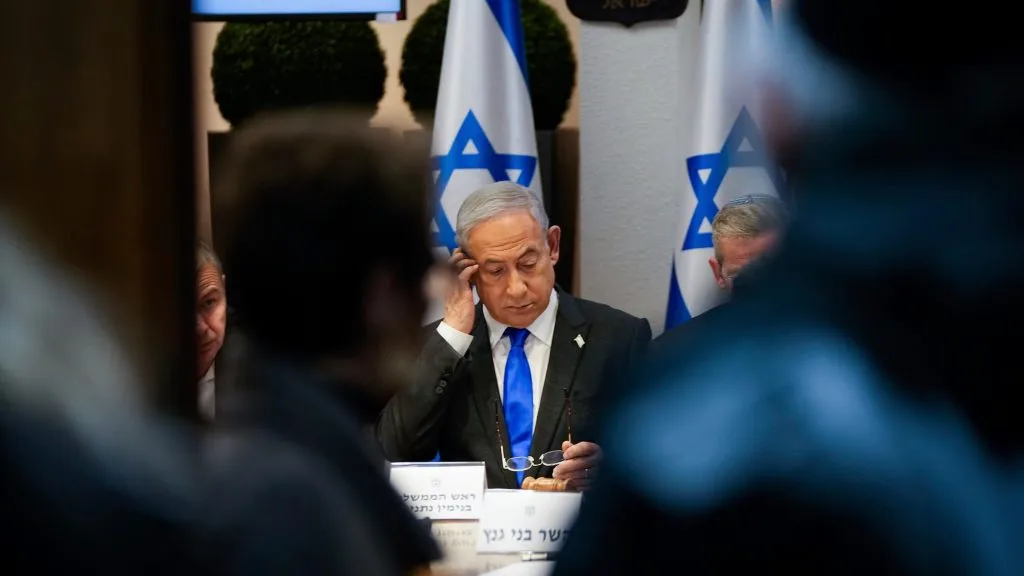
Livni’s politics are centre-right, while Barak’s are centre-left.
Barak goes even further with his criticisms of Netanyahu, claiming he “deliberately and systematically” boosted Hamas by allowing Qatar to give large amounts of money to the militant group in recent years.
He claims Netanyahu did this because the world would never accept a Palestinian state dominated by Hamas.
Shaul says this funding served to strengthen Hamas in Gaza, as part of Netanyahu’s plan to prevent a Palestinian state:
“He fed the beast and it exploded in our face.”
Four Corners put these allegations to Netanyahu’s office, but it did not respond by deadline.
Netanyahu has justified the Qatar funding by saying it was necessary to avoid a humanitarian catastrophe in Gaza. Having helped build up Hamas, he has since vowed to destroy it.
Just over a year ago, Netanyahu brought together the most right-wing coalition Israel has ever seen, appointing Itamar Ben-Gvir as national security minister and Bezalel Smotrich finance minister.
Ben-Gvir has criminal convictions for racist incitement and supporting a Zionist terrorist group.

“Ben-Gvir and Smotrich are two racist messianic guys who seem to have a very strong leverage on Bibi,” Barak claims, using Netanyahu’s nickname.
“Until now, our conflict with the Palestinians was basically political and territorial … they want to turn it into a major religious war between Israel and Islam.”
Both men are implacably opposed to a Palestinian state, with Smotrich even publicly denying the existence of Palestinians.
I ask Ayalon for his assessment.
“I see them as terrorists and as Jewish messianics,” he says.
When I double check someone who has run Israel’s intelligence agency is calling two of the country’s senior ministers terrorists, he says: “Of course. They are.”
Four Corners put questions to Smotrich and Ben-Gvir’s offices but did not receive a response.
The forever war?
For all the claims and counterclaims I encounter in talking to both Israelis and Palestinians, one thing is indisputable: the nature and extent of this war will continue.
Dichter makes clear he doesn’t see an end coming any time soon.
“It may take a year or two,” he says.
“We’re in a very bleak, very dark moment in our own history,” says Palestinian Omar.
“But at the same time … from the depths of this darkness, we can always see some light.
“Perhaps there is some hope that we can reconfigure life in the holy land in a way that treats people equally, treats people with the humanity that they deserve.”
Israeli Ayalon says Palestinians need to have hope for there to be any chance of peace.
“You cannot deter a person or a group of people if they believe that they have nothing to lose.
“We Israelis, we shall have security only when they will have hope.”
Watch the Four Corners documentary, ‘The Forever War’, tonight from 8.30pm on ABC TV and ABC iview.
Be the first to hear about our next story. Subscribe to the Four Corners newsletter and follow Four Corners on Facebook.
Credits:
Photos: Ron Foley, Mohammed Salem, Alexi J. Rosenfeld, Ohad Zwigenberg, Maya Alleruzzo
Drone video: IR Productions
Leave a Reply
You must be logged in to post a comment.